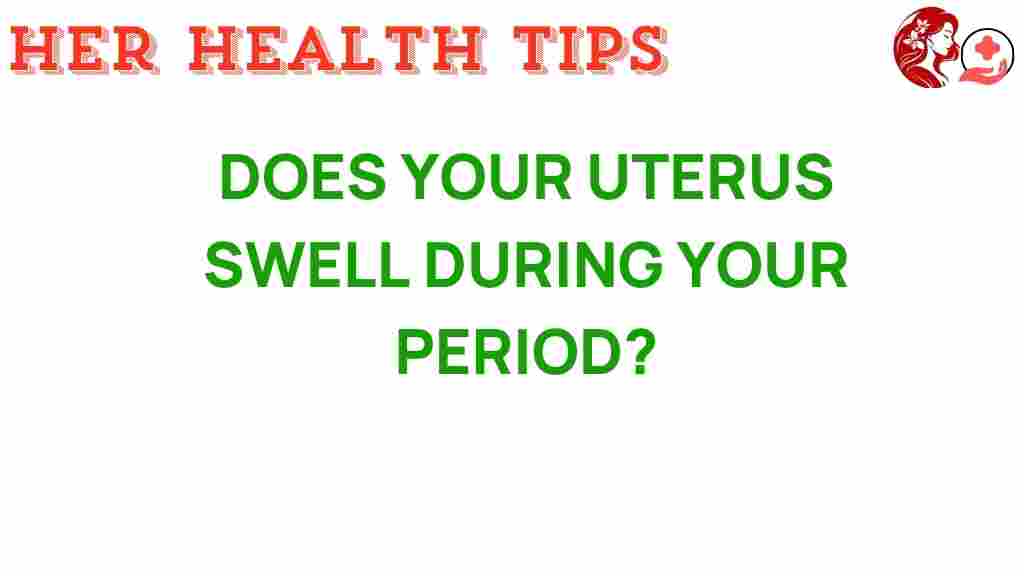Unpacking the Mystery: Does Your Uterus Swell During Your Period?
For many women, the menstrual cycle can be a time of physical and emotional changes, often accompanied by various period symptoms. One common concern during this time is whether the uterus experiences swelling. This article will delve into the concept of uterus swelling during menstruation, exploring its causes, effects, and implications for women’s health.
Understanding Uterus Swelling
The uterus, also known as the womb, is a muscular organ located in the pelvis. It plays a crucial role in the menstrual cycle and reproduction. Throughout the cycle, hormonal changes prepare the uterus for a potential pregnancy. However, these changes can also lead to symptoms such as abdominal discomfort and pelvic pain.
When discussing uterus swelling, it’s important to distinguish between normal physiological changes and those that may indicate a health issue. Let’s break it down further.
Cyclical Hormonal Changes and Uterus Swelling
The menstrual cycle is governed by a complex interplay of hormones, primarily estrogen and progesterone. Here’s how these hormones influence the uterus:
- Follicular Phase: After menstruation, the ovaries produce estrogen, which helps thicken the uterine lining.
- Ovulation: Estrogen peaks, leading to the release of an egg. This phase is often accompanied by a temporary increase in pelvic pressure.
- Luteal Phase: Progesterone levels rise, further preparing the uterus for a potential pregnancy. If fertilization does not occur, the uterus sheds its lining, leading to menstruation.
During these phases, especially the luteal phase, some women may experience a sensation of uterus swelling due to fluid retention and increased blood flow to the pelvic region.
Common Period Symptoms Associated with Uterus Swelling
Many women report various symptoms during their menstrual cycle, which can include:
- Pelvic Pain: Discomfort may occur due to the uterus contracting.
- Abdominal Discomfort: Women often feel bloated or experience cramping.
- Breast Tenderness: Hormonal fluctuations can lead to breast swelling and tenderness.
- Mood Swings: Hormonal changes can impact mental health, leading to irritability or sadness.
Is Uterus Swelling Normal?
In most cases, mild swelling or a feeling of fullness in the uterus during a woman’s period is normal. However, it’s essential to be aware of the body’s signals. If swelling is accompanied by severe pain or unusual symptoms, it could indicate an underlying condition such as endometriosis, fibroids, or other reproductive health issues.
When to Seek Medical Help
While some degree of uterus swelling is normal during menstruation, certain signs should prompt a visit to a healthcare provider:
- Severe or debilitating pelvic pain.
- Heavy bleeding that requires changing pads or tampons every hour.
- Symptoms persisting outside the menstrual cycle.
- Signs of infection, such as fever or unusual discharge.
Consulting a doctor can help identify whether the swelling is part of normal physiological changes or if it warrants further investigation.
Understanding Endometriosis
Endometriosis is a condition that occurs when tissue similar to the uterine lining grows outside the uterus. This can lead to significant pain, swelling, and fertility issues. Women with endometriosis often experience:
- Chronic pelvic pain that worsens during menstruation.
- Pain during intercourse.
- Severe cramping or bloating.
If you suspect you have endometriosis, it’s crucial to seek medical advice for diagnosis and treatment options. For more information, you can visit this endometriosis foundation.
Managing Uterus Swelling and Period Symptoms
There are several strategies women can use to manage uterus swelling and related symptoms during their menstrual cycle:
Self-Care Techniques
- Heat Therapy: Applying a heating pad to the lower abdomen can relax muscles and alleviate cramping.
- Hydration: Drinking plenty of water can help reduce bloating.
- Balanced Nutrition: Eating a diet rich in fruits, vegetables, and whole grains can support overall health and mitigate symptoms.
- Regular Exercise: Physical activity can improve circulation and reduce pain levels.
Over-the-Counter Medications
Nonsteroidal anti-inflammatory drugs (NSAIDs) such as ibuprofen can help manage pain and reduce inflammation during menstruation. Always consult with a healthcare professional before starting any medication.
Alternative Therapies
Some women find relief through alternative therapies such as:
- Acupuncture: This traditional Chinese medicine practice has been reported to help with menstrual pain.
- Herbal Remedies: Certain herbs may help alleviate symptoms, but it’s essential to research and consult with a healthcare provider.
Professional Treatment Options
For women experiencing significant discomfort or diagnosed conditions like endometriosis, treatment options may include:
- Hormonal Therapy: Birth control pills can help regulate hormones and reduce symptoms.
- Surgery: In severe cases, surgical options may be considered to remove endometrial tissue or fibroids.
Conclusion
Understanding uterus swelling during your period is essential for managing your menstrual health. While some swelling can be a normal part of the menstrual cycle due to hormonal changes, significant symptoms should not be ignored. Being proactive about your health and seeking medical advice when necessary can lead to better outcomes.
Remember, each woman’s experience with menstruation is unique. By paying attention to your body and its signals, you can better navigate your menstrual cycle and maintain optimal women’s health.
For more detailed information on managing menstrual cycle symptoms, feel free to explore our comprehensive women’s health guide.
This article is in the category Reproductive and created by HerHealthTips Team
